Silver Wordsmith: An author's journey |
 How can you not read a book in which Santa looks like this? Credit: William Joyce How can you not read a book in which Santa looks like this? Credit: William Joyce Those of you who have been following this blog for a bit know that I’m still trying to figure out how best to use this resource. Which made me consider that even though I have expressed how important I think reading is for a writer, I haven’t said much about what I personally read. So I thought this would be a perfect opportunity to share, and given that it’s still early in the year, and I have already expressed how obsessed Russians are with their New Year’s stuff, I would put together a “Best of” list for 2018. To start with a disclaimer, I want to say that due to work and home commitments, 2018 has been my worst reading year in about five years, so I won’t provide my embarrassingly short list of everything consumed and will try to conceal it as best as I can. I’m also one of those people who doesn’t care to distinguish between audiobook and written text. Sure, you’re technically not “reading” but you’re still consuming stories in a way that’s closer to reading than say, observing drama or television, so I think it counts. Having said that, I probably won’t be mentioning below which is which unless it’s relevant to my feelings on the book. Anyway, without further preamble, here are some of the top books I’ve read in 2018: Most Fun Kingkiller Chronicle Day Two: The Wise Man’s Fear by Patrick Rothfuss. Earlier this summer I joined the legions of fans who are patiently waiting for the next book in the Kingkiller Chronicle saga. Fortunately, since my entry into this club is fresh, I am yet to join the other legions who are impatiently waiting for next one to come out. Either way, after taking several years to go through all the Song of Ice and Fire books, Kingkiller Chronicle is a refreshing read that doesn’t dwell on the doom and gloom. The world and character building is so detailed, however, that the pace of the books makes me think they need about 20 books and 200 years to finish. That said, despite the fact that I got myself into this fandom mess, I loved listening to this during my morning bike rides and runs. And knowing that Lin-Manuel Miranda is involved in an adaptation makes me all sorts of giddy for many reasons. Honourable Mention: Nicholas St. North by Laura Geringer and William Joyce. Ever just see a book in a store and then tell your friends how ridiculous you thought it looked and they bought it for you for your birthday because they knew you secretly really wanted it? Well that’s how this children’s novel came into my possession and I’m so glad it did. It’s the adventures of young Santa Claus in the days that he could be described as a “ruffian” and a “thief”. How could you not want to read this? It’s the first book in the whole Guardians of Childhood series and I’m not sure I’ll be picking up any of the sequels, but at the same time I had fun with the ridiculous premise and jaunty execution. Could have foregone a full two-page spread crapping all over my ancestors, but that’s beside the point. The Book was Better Altered Carbon by Richard K. Morgan. This was one I listened to on Audible and I think the experience was enhanced by Todd McLaren’s gruff narration of this hard-boiled detective novel placed in a sci-fi setting with excellent worldbuilding. The core concept of the novel, where human consciousness can be transferred to a variety of physical bodies, or “sleeves” thereby creating near-immortality, is taken to some very interesting places by Morgan. The Netflix adaptation, which I still think is a decent piece of television, tries to both condense and expand on parts of the story with varying effects. Overall I think the changes in the adaptation lead to a more sloppy plot with holes and inconsistencies, so I would recommend giving the book a try first. 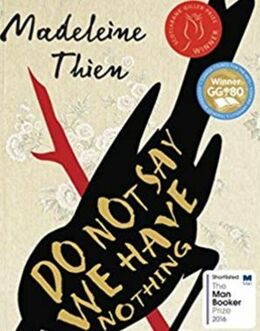 This book racked up some serious accolades but really it was some high-level torture of the soul This book racked up some serious accolades but really it was some high-level torture of the soul That Was Fun but Let’s Not Do This Again The Stone Raft by Jose Saramago. Once upon a time, sometime in undergrad, I set myself a goal of sampling the work of each winner of the Nobel Prize for Literature. What I was doing making such lofty goals when I couldn’t even keep up with the assigned reading in my English classes I’ll never know, but more than a decade later I’ve just cracked 25%. The thing about winners of the Nobel Prize, is that it the Prize itself has been criticized for picking obscure winners that are less than accessible to the general public. I’ve found my experience to be a mixed bag – I absolutely fell in love with the poetry of Tomas Transtromer but getting through Mo Yan’s Republic of Wine felt a big like running an uphill marathon drunk. Stone Raft, by 1998 winner Jose Saramago would fall somewhere in the middle of this scale. On the one hand, I quite enjoyed all the satire that grew out of the Iberian Peninsula’s sudden break-off and drifting out to sea, as it took digs at tourism, international and local politics and nationalism. On the other hand, his paragraph-long sentences and dialogue structure that’s presented in a single sentence with only commas indicating a change of speaker, was a challenge to say the least. Not to mention the multiple references to outdated gender norms which may or may not have been part of the satire but sometimes it’s hard to tell, you know. In the end, it was a book I was glad I had read. I don’t believe I’ve read anything by a Portuguese writer before, and it was nice to dive back into some magical realism while I myself am somewhat exploring the genre. Honourable mention: Do Not Say We Have Nothing by Madeleine Thien. First off, this was an excellently written and deeply powerful novel with intricate characters that really brought the pain of their time to the surface. Well deserving of the Scotiabank Giller Prize that Thien won in 2016. So what exactly is my beef with it? The Cultural Revolution is downright terrifying. The ability of humans to turn on their neighbours, friends and even family in the name of survival is nearly limitless. And governments built on ideology, greed and a thirst for power can exploit that ability with frightening efficiency. So much of our western media, and particularly a relatively recent wave of young adult novels, portrays the eventual triumph over oppressive regimes. But if you want to read about hope dying under the treads of a tank, read Do Not Say We Have Nothing. For me, I’m going to take a short break from the bleakness of reality. 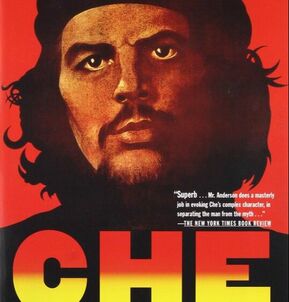 I've spent more than a year discretely hiding this very in-your-face cover on the bus. Though it was a university bus so I probably fit right in. I've spent more than a year discretely hiding this very in-your-face cover on the bus. Though it was a university bus so I probably fit right in. Most Influential Che: A Revolutionary Life by Jon Anderson. Yes, probably the most “wtf” entry here. I’ve had a fascination with Cuba ever since I was a little kid, having visited a couple of times while my grandparents were stationed there during Soviet times (yeah, a whoooole many more stories coming out of this that I’ll save for later). So as part of my education on the subject I wanted to know a bit more about the Cuban Revolution’s most far-reaching figure. Some paint him as the devil, others as a saint, and I wanted a book that can do a good job of showing me where the middle was. Ultimately, the safest word you can use to describe Guevara is “complicated”. He led a fairly inauspicious life that blew up to global significance within a few short years. He somehow possessed a poetic love for humanity while also being completely numb to the value of individual lives when they face off against his political ideals. He managed somehow to both be a visionary and someone who often went way in over his head which resulted in disastrous consequences for millions of people. As you can see, there’s lots of aspects of Guevara that can be picked apart into various fictional characters, and I’ve already begun the process with some of my works in progress. So at least in that respect I’m glad I read this. As an aside, reading this book on and off over the last year also made me realize how important reading fiction is to my writing, and you can read more about that here. Honouable Mention: Alexander Hamilton by Ron Chernow. The really influential thing here is actually the Hamilton musical, but I think Chernow’s voluminous biography rounded out that experience quite nicely. 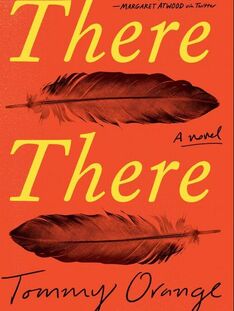 Just go and read it, you won't regret it. Just go and read it, you won't regret it. Best Book of 2018 There There by Tommy Orange. For a few years now I’ve attended the Vancouver Writers Festival. Not only does it encourage me to buy books I normally wouldn’t have picked up, but also sometimes I buy a gem like this one. It’s been a while since I read anything that felt like a true page-turner for me, probably The Golden Compass, but this one I was just hooked. The interconnected stories of Native American characters living around the Oakland area pulled me in and wouldn’t let go. It was such a richly varied cast that it made me feel almost as though I was there, observing both the struggles with things like depression but also the hope that is built from family and community. The novel of course touched on sensitive issues that I can’t even begin to understand, lacking the perspective being a non-white minority as well as the original settlers of the land upon which white settlers built their country. We face very similar but somewhat different issues in Canada and our own Indigenous population is probably the most marginalized in our society. Admittedly, I’ve been on my own slow journey to understanding that is still far from complete, but I’m glad for books like this because they showcase how important novels are in changing the world.
0 Comments
I love New Year’s. As a Russian person I am pretty much obligated to obsess over it and structure my entire year around what happens on New Year’s Eve. There’s the Russian saying that “How you greet the New Year is how you will spend it” and this is just a hotbed for all sorts of neuroses and superstitions, which we Russians also excel at. And speaking of Excel, judging by my posts talking about bullet journal entries, it should come as no surprise that I have all sorts of spreadsheets that I use to collect data on my writing. One such spreadsheet is my words-per-day log, which I have been keeping since 2005 though with a significant gap covering 2011-2015. That said, at the end of this year, I now have 9 years-worth of numbers, and since it’s just past New Year’s, and my obsession extends to all kinds of year-end lists and reviews, I thought I would download some of that obsession onto you and do a year in review about how much writing I had done this year At a cool 100,000 words, this has been the most productive year since I started tracking. There is of course the disclaimer about the missing years but I doubt any of them came close. 2018 leaves second place (with only 69,000) in the dust. That year was 2008 and I spent the better part of the summer getting almost 50K words into a novel that I ultimately abandoned. Reaching this 100K milestone makes it a bit tough to have the 2019 top this output, but what’s life without a couple of challenging goals?
My most productive day was October 10 at 1634 words. Wish I knew what it is that I was eating on that day so I can replicate this success, but oh well. I have not broken 2,000 words since the long care-free days of having a lot of time on my hands during summer. That’s fine, there’s always next year and it’s not like I’m going to beat myself up over it. Sometimes I have a day where I feel like I could go north of 2,000 but other responsibilities come calling and that’s okay. Writing may be your life, but life is still bigger than your writing. Your muse won’t retire just because you told it that you need a break for a day or two. Speaking of fickle muses. I spent 147 days not writing at all this year, most of them weekends, because face it, after I’ve put the kids to bed at the end of a long day all my brain is good for is to maintain vital bodily functions. This amounts for a seemingly horrifying 40% of all my days, but again, you can stare at the raw numbers and beat yourself up over it, or you can accept that you did your best in the circumstances. Sure, keep your eye on opportunities where you can write more, but I felt as though I had a decent writing year, and I’m going to go by the feeling, rather than the stats. On a similar note, the least productive month were August and December with 14 days of not having written a thing. Both of these were due to going on vacation, and for some reason I have a really hard time getting down to writing, even though I have so much to say. I guess the best alternatively is to write about it when you get back. And either way, those months might seem weak, but 14 days is still getting to write any other day, and if you’re like me and hold down a day job, writing every other day is a pace to be proud of. I know these kinds of numbers seem antithetical to the whole “write everyday” creed but man, love is such a complicated beautiful thing it's hard to find time to do the same thing every day even if it is something you love. Lesson here? Relax, right when you can and when you feel like it. Don’t make it a chore. There are plenty of those that will set hard targets for you making it sound as though you’ve completed failed as a writer if you didn’t meet those goals. I want to make it quite clear that I don’t subscribe to this kind of gatekeeping in writing. Writing for me is a constant journey. It’s not just a hobby, or something I’ve set out to do merely to challenge myself. It’s one of the ways I see myself. And this is the main reason why I don’t encourage defining yourself with words and goals. They’re a fun part of record keeping, and a nice way to motivate yourself, but they can’t grow into more than that. I once fell into the trap of defining myself by my production and the only thing that did was hurt my production. If you see yourself as a kind and funny person, would you accept someone telling you that you need to do x number of good deeds per week or make x number of jokes a day to be allowed to see yourself as such. No. Your trait belongs to you, and so you get to define what it means for yourself. That little word in my bio here, or on Twitter or Instagram that lists me being a writer alongside a father and a husband, and, to a certain extent, a lawyer, is not just a useful descriptor but goes to the essence of who I am. “Writer” is part of me, and like any part of a person, that part grows with me, it adapts with me, it responds to me as a person. So this year has not only been about putting words on paper, about starting novel projects or getting short stories published. It was also about learning and growing and moving forward wiser and hopefully better. I embraced my need to outline before I can launch myself into a project. I ruminated on where writing fits into my life and my relationship with my loved ones. I’ve worked out a way to get out of some instances of writers block. So in the end, I’m super excited about the words I will commit to paper in 2019, about the projects I will start and I will finish (fourth draft of my novel, perhaps?), but most importantly, I look forward to all the things I might learn, and to share them with you here. As recently as my previous post I mentioned that I had a few short stories accepted earlier last year that were still waiting on their publication. Well I had a pretty pleasant start to the new year and am happy to report that “Slippers” has now been published on the Prairie Journal website. You can find it at the following link by clicking my name in the left column that lists author names under “2019” and then selecting “Slippers” rather than “Biography” from the drop down that appears: "Slippers" on the Prairie Journal website. I can’t express enough the gratitude I have to the Prairie Journal editors who have found merit in my story and have so kindly helped me share it with the rest of the world. Also quite happy that it’s an online publication so I can easily share with you all another piece of my writing. “Slippers” had originally been written as an entry to The Advocate’s annual short story competition. The Advocate is a publication for British Columbia lawyers that includes academic writing, columns and local legal news, but also does this annual writing competition where each submission has to be at least tangentially related to something about the law. The Advocate was actually the publication that gave me my first big break. Back in 2013, my short story “Spider Silk” won third place in the competition and was published in their July issue. 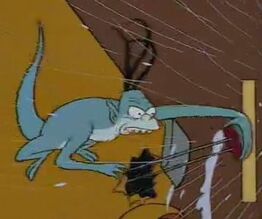 A face only a mother would ... nah not even that A face only a mother would ... nah not even that “Spider Silk” was a dense story into which I managed to pack the entire court proceedings for an emancipation application of a domestic android. His main argument? He was in love, and therefore deserved the same rights as humans, instead of being sold for parts because his owner hit some rough financial times. It was a soft science fiction story (or is it “speculative fiction”? I can’t keep up) reminiscent of my earlier writing in terms of content but obviously not in writing quality otherwise it would have never gotten published. I had prepared a number of short story for the same contest since then but none have won. With “Slippers”, it wasn’t much a surprise – the connection to law is fairly remote considering the winners that get picked year after year, and the protagonist could have been easily working in any number of high-demand professions. I guess this story would have come about when I started feeling my first pangs of burnout at the law firm, before I’d taken any of the steps to get out and go in-house. That would explain why I don’t exactly treat that type of work-life “balance” kindly in the story. As for the story itself, I’m afraid there’s not much more than meets the eye, unlike my long-winded rant about everything that went into my last published story, "Ursa Major". I wanted to explore this sense of emptiness that comes with the loss of a loved one. The emptiness was then contrasted with the personified demons that move into the house in earnest and fill in the empty space. It is a story about the dark that invades when the light retreats, and how to find that spark to push back the demons once more. Fun fact here is how I visualized the little demons that haunt my protagonist. I based them largely on the gremlin that takes apart the school bus from that “Nightmare at 20,000 Feet” parody in the Simpsons’ Little Treehouse of Horror IV, except without the hair and the overbite. Probably one of my first early clues of how much animation is an influence on my writing and how my writing works best when imagined as animation rather than “real life”. This is a realization that has been slowly dawning on me over the last year and I’m sure I will share more about that later. So there it is, hope you have enjoyed my story and a little peak into the process behind it. Hopefully there are many more to come. 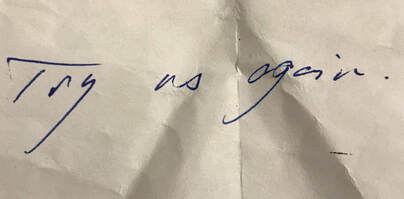 For those of you that have been following me over the last year, you would have seen me talk about how seriously I have taken my publication efforts this year. To be clear, I don’t have any finished novels as of today, so these efforts have focused on my short stories. In 2018, through perseverance in the face of an endless string of rejections, many lunchtimes spent in front of Netflix and publisher websites and with, of course, a little bit of luck, I managed to get my short story, Ursa Major, published on the Passages North website. I’ve received another three acceptances since then, though none of them have yet to culminate in actual publications, but by early summer, I found that I exceeded my own expectations for the year. And I’m glad that left me flying high, because it seems that my well of good luck was tapped dry. Since then it’s been an endless string of rejections, and because of my very concerted efforts to keep sending submissions, the rejections have been a real deluge in the latter half of 2018 (by the way, the busiest time for these has been Christmas, so … thanks for that, I guess?). So this is when you stare at all those unfortunalies and regretablies and “pls delete this number” (okay, that one didn’t happen but I’m not the only one who reads this in between the lines, right?) and dig deep for a little self-administered pep talk. Firstly, you’re never alone. Not to say that you can’t indulge in complaining and self-pity once in a while just because everyone experiences it, but that you don’t have to feel so lonely about it. You’re not the most miserable writer in the world because you received three rejections in one week. We’re all out there doing more or less the same thing, pouring our hearts and souls into a piece of writing that we then willfully submit for the judgement of others. Sometimes we’ll get unequivocal but politely-worded ‘no’s, but sometimes even in the rejection we’re able to find a ray of light. It was one of these instances that prompted me to write this post – three short words that can act as a hook to hang my hopes on. A couple of months ago I mailed a short story to a fairly prestigious journal (I don’t want to name names because I’m not sure what the etiquette is on that but let’s just say if they ever publish me I will be pretty dang ecstatic). I checked the mail on New Year’s Eve and found an envelope that was addressed to me in my own handwriting. I still get this giddy feeling of excitement and dread any time I get one of my self-addressed envelopes back, and it makes me miss the days when most submissions were done by mail rather than through Submittable or other online submission portals. As I’m opening the envelope, I can tell the contents is pretty thin so I kind of know what to expect at that point, and out falls a small piece of paper that accounts for their form rejection letter. The name of the short story is handwritten at the top, the generic rejection text apologizes for the form letter, but at the bottom of the note they added a short message: “Try us again”. I don’t live in a world of four and five-star Amazon reviews, or bestseller lists, or author signing tables. I live in a world where three short words like “try us again” can mean the difference between looking down and looking up. It means there’s an editor out there who chose not to publish my story, but gave me hope that it was mostly the work of serendipity. They, who read hundreds if not thousands of short stories a year, asked me to send them one more, and that to me means the world. It’s a funny feeling, trying to build some wings out of such a small phrase, but therein lies my advice to you. I think there is a temptation among writers, especially those starting out, to glamorizing the suffering of the art. We shouldn’t derive inspiration from the grind, or from proving ourselves or others wrong, or from whatever sense of suffering and conquest we feel as we write. Instead, look for the brightness that breaks through the dark. Did someone like your turn of phrase? Did they complement you on your vocabulary? Did they point out how concise that email was? Did anyone ever say to you “well said” or to “keep writing”? Take every single one of these instances and build yourself a fire. Even if you’re not finding traditional writing success, this is what makes you a writer. The world isn’t able to ignore what you are and in that you can find comfort. Don’t clutch those rejections tightly but let them flow through you, discarding them like autumn leaves ready for the spring buds. So with that simple note that arrived on the eve of the new year, I have my motto for the next one: try us again. And with that, I will keep trying. I will continue my existing efforts of getting published, I will write more new stories, and I will try new things that may or may not succeed. And I encourage you to do the same: forget Yoda’s “Do or do not, there’s no try” and build all those tries into a ‘do’. |
Michael SerebriakovMichael is a husband, father of three, lawyer, writer, and looking for that first big leap into publishing. All opinions are author's own. StoriesUrsa Major Categories
All
Archives
January 2024
|
Proudly powered by Weebly
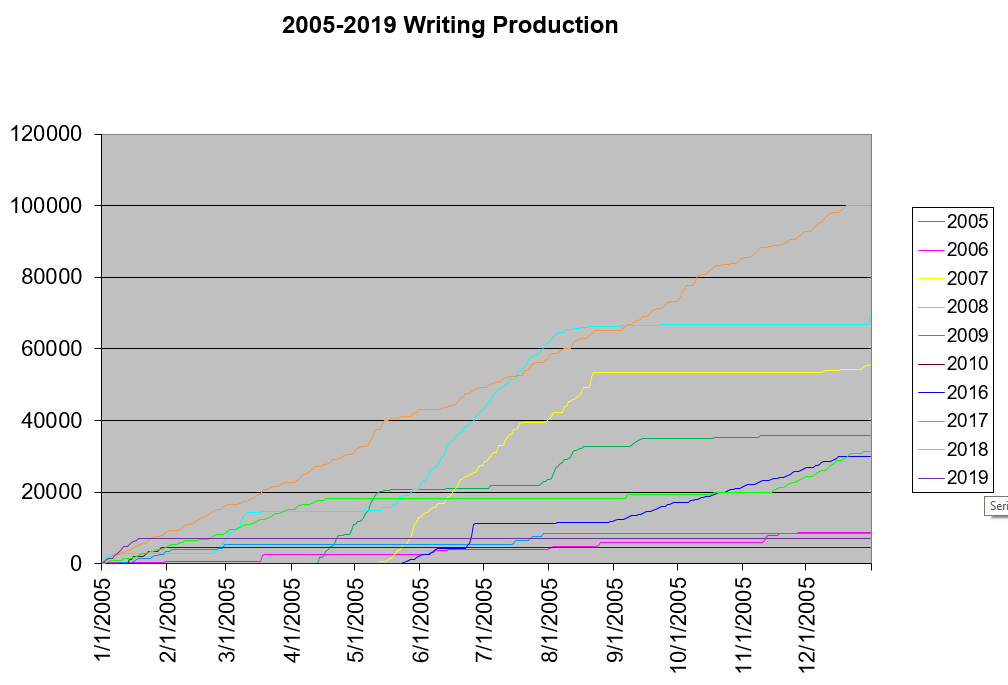
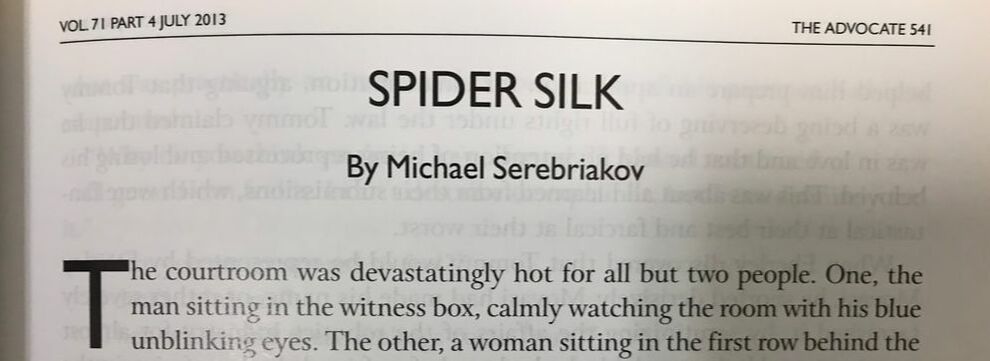
 RSS Feed
RSS Feed